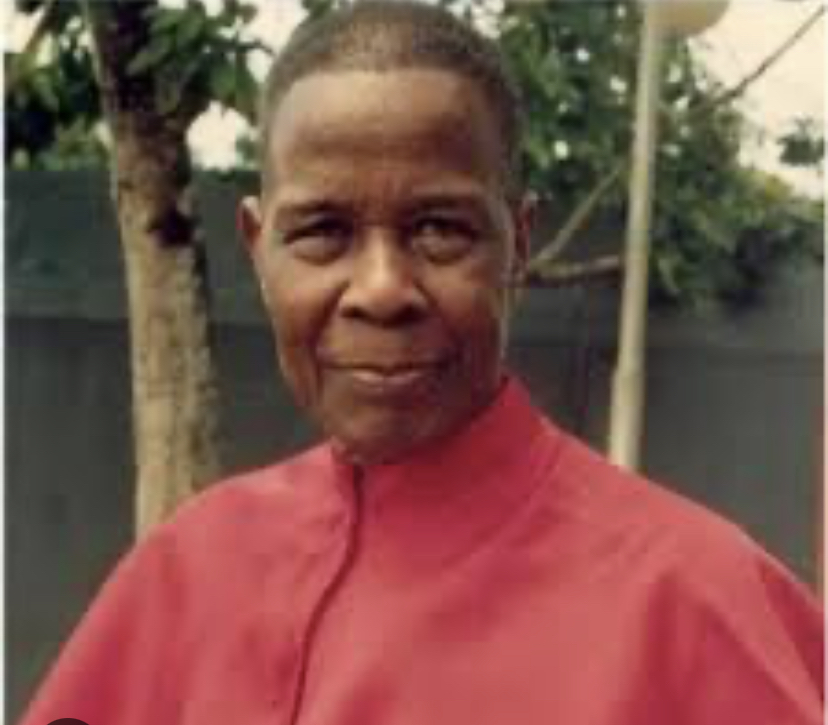Olumba Olumba Obu (1918–2003) was a Nigerian religious leader and founder of the Brotherhood of the Cross and Star (BCS), a spiritual organization often described as a new religious movement.
Based in Biakpan, a small village in Cross River State, Nigeria, Olumba’s teachings and leadership attracted a significant following during his lifetime and beyond, with millions of adherents across Nigeria and worldwide.
Advertisement
He is known for his controversial claims and strict doctrines; Olumba remains a significant figure in Nigeria’s religious landscape.
This biography explores his early life, educational background, spiritual teachings, family, and ththe lasting legacy of his work.
Advertisement
Early Life and Background
Olumba Olumba Obu was born in 1918 in Biakpan, Cross River State, located in Nigeria’s South-South region.
Details about his early education and upbringing remain scarce, as his followers focus more on his spiritual journey than his formal education.
From a young age, Olumba displayed a deep interest in religious matters, which would later form the foundation of his spiritual leadership.
Olumba was familiar with Judeo-Christian religion, but he introduced teachings that diverged from traditional Christian interpretations.
His followers considered him “God in human form,” and he claimed to be the reincarnation of Jesus Christ.
Advertisement
The Brotherhood of the Cross and Star
Founding and Beliefs:
In 1956, Olumba Olumba Obu founded the Brotherhood of the Cross and Star in Calabar, Cross River State.
By 1964, the organization was registered under Nigerian law as a religious organization. Olumba’s teachings centered around love, forgiveness, and strict adherence to his interpretation of the Bible.
He rejected the idea that Jesus Christ achieved true enlightenment in his lifetime, claiming instead that he himself was the final reincarnation of Christ.
The doctrines of the Brotherhood combined Christian principles with Olumba’s personal revelations.
Advertisement
Followers were known for their unique dress code: plain white garments inspired by biblical passages such as 1 Peter 3:3 and 1 Timothy 2:9–10, symbolizing purity and humility.
Members were prohibited from wearing jewelry, makeup, or shoes, particularly inside their places of worship, referred to as Bethel.
Growth and Influence
The organization quickly gained traction. By the 1980s, the Brotherhood of the Cross and Star had approximately 600,000 followers in Nigeria and over 1 million worldwide by the 1990s.
The organization gained recognition for its charitable works, including assisting disadvantaged children, providing job training, and building schools for its members.
Advertisement
During his lifetime, Olumba was seen by many adherents as possessing supernatural powers.
His initials, “OOO,” became a symbol of reverence, often painted on followers’ homes and vehicles.
Leadership Transition and Internal Conflicts
In 2000, Olumba reportedly transferred the leadership of the Brotherhood to his eldest son, Rowland Olumba Obu, although this claim sparked significant controversy.
Rowland, also referred to as Olumba Olumba Obu, was believed by some followers to have inherited his father’s spiritual authority. However, leadership disputes soon emerged.
Advertisement
Family Conflicts
Olumba Olumba Obu had five children, including Rowland and his sister, Helen Ibum Udoh, who were based in Nigeria.
His younger children—Ajah Obu, Fred Obu, and Orlando Obu—pursued education and careers in the United States.
After Olumba’s alleged transfer of power to Rowland, Helen and Rowland began vying for control over the Brotherhood’s spiritual leadership and financial assets.
Read also: Jerry Chuks Biography: All you need to know about Soft Made It
This resulted in violent clashes among followers, as well as legal battlesover succession rights.
By 2006, the disputes had spread to the United States, where Ajah and Fred filed lawsuits against one another over the sale of church properties.
These conflicts highlighted the complexities of managing the Brotherhood’s significant resources and global following.
Controversies and Death
While many of his followers claim that Olumba Olumba Obu is immortal, reports suggest that he passed away in 2003.
His alleged death remains a contentious topic among members of the Brotherhood.
Advertisement
Some adherents believe he continues to exist as a spiritual being, while critics and former members insist that he is no longer alive.
In spite of the controversies surrounding his death and leadership succession, Olumba’s teachings and influence persist, with millions of followers still dedicated to his doctrines.
Teachings and Practices
Olumba’s teachings emphasized:
-Purity and Humility: This was symbolized by the white garments worn by his followers.
– Non-Materialism: Members abstained from wearing jewelry, makeup, and other adornments, reflecting a commitment to spiritual rather than material wealth.
– Sacred Spaces: Shoes were forbidden inside places of worship to maintain sanctity.
– Reincarnation: Olumba taught that Jesus Christ had reincarnated multiple times and that he was the final incarnation.
Personal Life and Family
Olumba Olumba Obu was married and had five children:
Advertisement
1. Rowland Olumba Obu (eldest son): Took over leadership of the Brotherhood in 2000.
2. Helen Ibum Udoh (née Olumba): Based in Nigeria and also claimed leadership rights.
3. Ajah Obu: Resided in the United States and was involved in legal disputes over church properties.
4. Fred Obu: Also based in the United States, engaged in leadership
5. Orlando Obu: Focused on his career and family life in the United States.
Olumba’s children have played significant roles in continuing his legacy, though not always harmoniously.
Net Worth and Legacy
Olumba Olumba Obu’s net worth is difficult to estimate due to the Brotherhood’s extensive assets and donations from followers.
His organization amassed considerable wealth through tithes, offerings, and investments in properties and businesses.
Today, Olumba’s legacy is a mix of spiritual reverence and organizational challenges.
His teachings continue to inspire millions, even as internal divisions persist within the Brotherhood.
Social Media Presence
Although Olumba Olumba Obu did not use social media during his lifetime, the Brotherhood of the Cross and Star maintains an online presence to share his teachings and attract new followers.
The movement’s modern leadership uses platforms like Instagram to engage with younger audiences.
– Instagram: @leaderobu
Conclusion
Olumba Olumba Obu remains a polarizing figure in Nigerian religious history.
As the founder of the Brotherhood of the Cross and Star, he introduced a unique blend of Christian doctrines and personal revelations that attracted millions of followers.
In spite of internal family conflicts and controversies surrounding his death, his influence endures, solidifying his place as one of Nigeria’s most intriguing spiritual leaders.


3 thoughts on “Olumba Olumba Obu Biography: All you need to know about controversial religious leader”